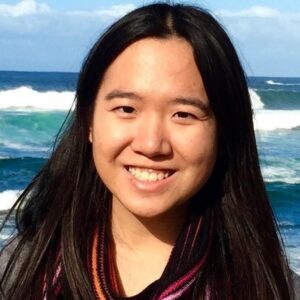Serina Chang
Bio: Serina Chang is a 5th year PhD student in Computer Science at Stanford University. She develops methods in machine learning and data science to tackle complex societal challenges, from pandemics to polarization to supply chains. Her research focuses on large-scale human networks and novel data sensors, such as mobility networks from location data and query-click graphs from search engines. Her work has been published in venues including Nature, PNAS, KDD, AAAI, EMNLP, and ICWSM, and featured in over 650 news outlets, including The New York Times and The Washington Post. Her work is also recognized by the KDD 2021 Best Paper Award, NSF Graduate Research Fellowship, Meta PhD Fellowship, EECS Rising Stars, Rising Stars in Data Science, Cornell Future Faculty Symposium, and CRA Outstanding Undergraduate Researcher Award. Beyond research, Serina has also served as head course assistant for Stanford’s Machine Learning with Graphs, Program Chair of Machine Learning for Health 2023, and a co-Chair of the Data Science for Social Good Workshop at KDD 2023.
Talk Title: Inferring networks and behaviors from novel data for critical decision-making
Abstract: In an interconnected and fast-moving world, effective policymaking increasingly relies on understanding complex human networks and dynamic behaviors. Novel, high-frequency data sources, such as cell phones and search engines, introduce new opportunities to capture these networks and behaviors at scale. However, there remain substantial gaps between real-world systems and what is recorded in data, such as incomplete networks, unlabeled data, and unknown causal mechanisms. My research seeks to close these gaps by developing methods in data science and machine learning to infer robust signals about real-world networks and behaviors from novel data sources. Using these methods, I derive behavioral insights and build policy tools for high-stakes societal challenges, from pandemic response to political polarization to supply chain disruptions.
In this talk, I will focus on my research related to pandemic response. Specifically, I will cover two lines of work: (1) inferring fine-grained mobility networks from aggregated location data and modeling the spread of COVID- 19, (2) developing machine learning systems to accurately detect vaccine seeking and discover the concerns of vaccine holdouts from anonymized search logs. The findings from these works informed public health policies for reopening, reducing disparities, and distributing vaccines. More broadly, these works demonstrate the potential for large-scale data and computation to aid policymakers, paving a new way to support critical decision-making across domains.
